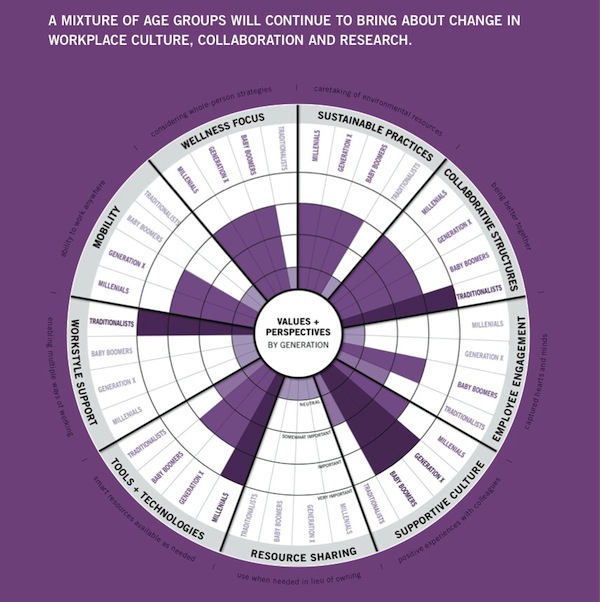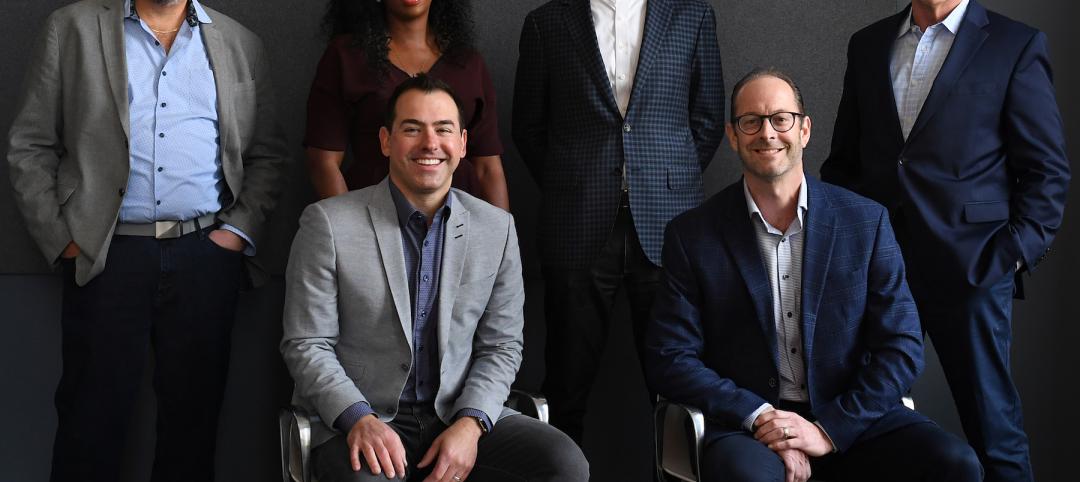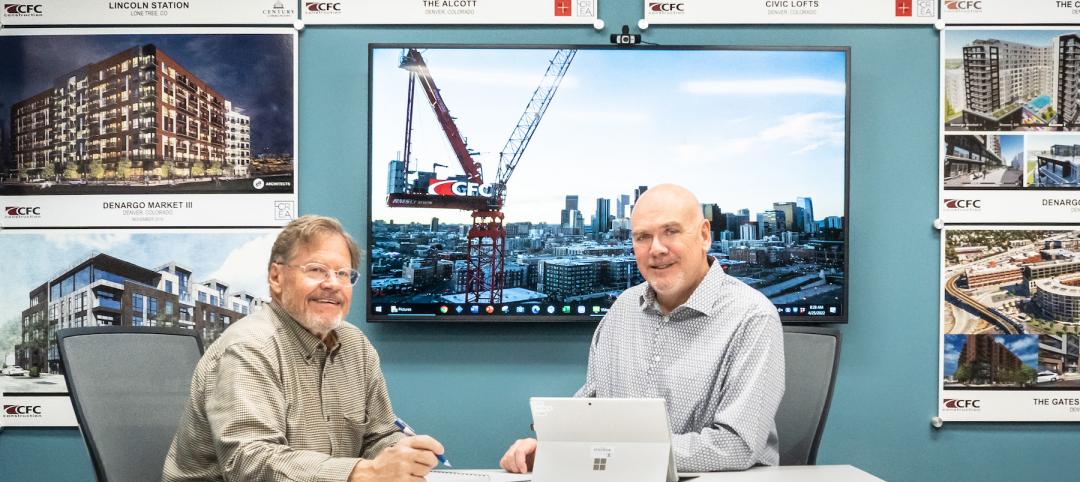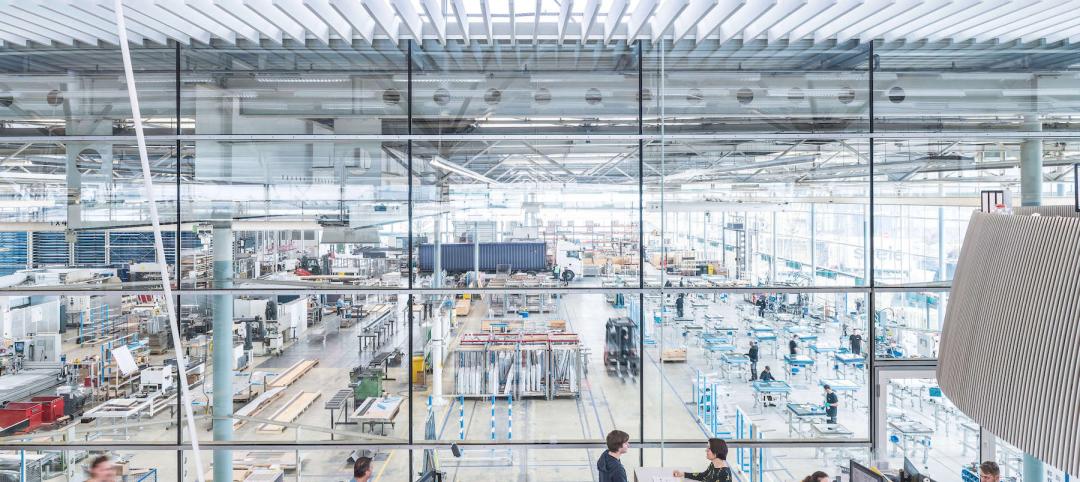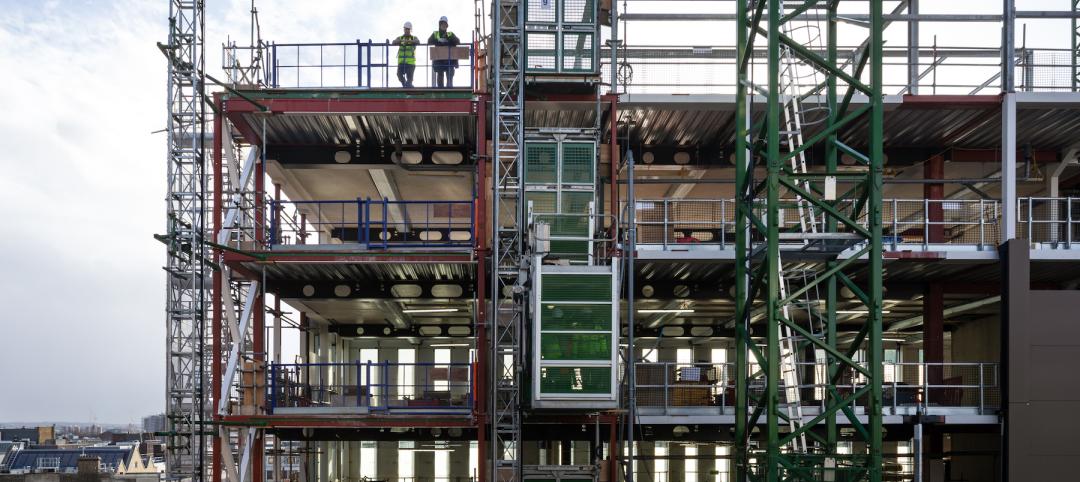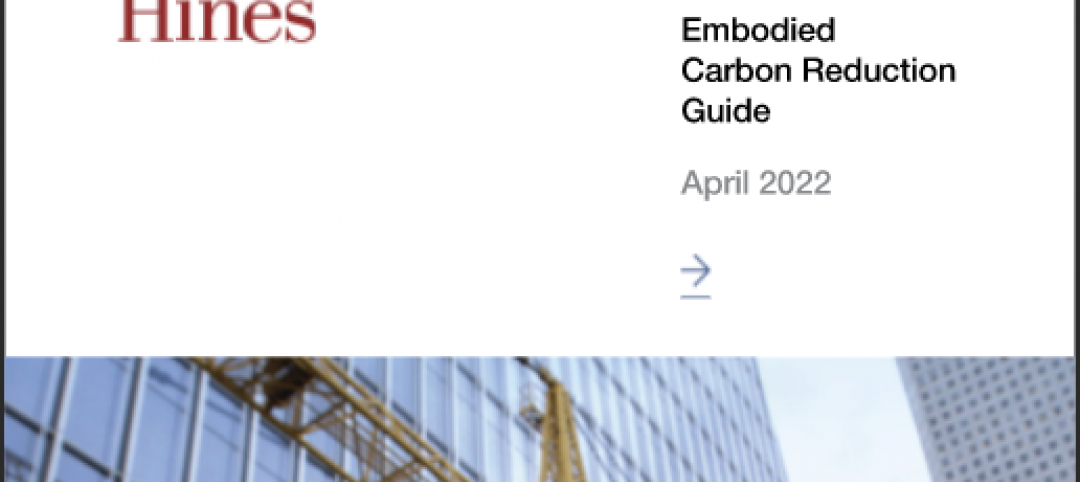Architectural giant Perkins+Will recently surveyed its staff of 1,500 design pros to forcast hot trends in the AEC field for 2014. The resulting Design + Insights Survey reflects a global perspective, influenced by the firm's active international projects.
Trend 1: Design + Resiliency
Robin Guenther, FAIA, LEED AP, Principal/Sustainable Healthcare Design Leader, labels Superstorm Sandy "a critical wake-up call." The report predicts that designers will pay more attention to creating work that accounts for the possiblity of natural disasters. Preparedness will be integrated with community-based design responses to impacts such as earthquakes, tornados, floods, and drought.
Trend 2: Design + Sustainability
Health aspects of building materials, as well as reduction in water use and adaptation to climate change, will be strong focuses in green design. The report characterizes material health as "the number one concern for 2014" among all sustainability issues.
Trend 3: Design + Active Design
Employee health and wellness will be increasingly central to design, the firm predicts. The intention to accommodate more movement opportunities in projects will have to overcome the fact that some clients do not see this as a high priority, particularly in workplace design. Nevertheless, "There are some alarming statistics that indicate movement throughout the day—or the lack of it—is part of a new frontier in predicting health outcomes," according to Joan Blumenfeld, FAIA, LEED AP, Principal/Global Interior Design Leader.
Trend 4: Design + Multigenerational Workplaces
A mix of age groups will continue to force change in workplace culture, collaboration, and research, according to the report. Traditionalists, Baby Boomers, Millennials, and Generation Xers often have very different ideas about what constitutes a productive and effective workplace. Millennials (1980-2000) prioritize tools and technologies, whereas Boomers (1946-1964) place a strong emphasis on a supportive culture. "Design [should address] the diverse workstyles emerging as a result of the generational shift underway," says Frederick J. Schmidt, IIDA, LEED AP, Managing Principal/Global Corporate Interiors Practice Chair.
Trend 5: Design + Technology
Modeling, collaboration, and mobile technologies will dramatically influence better design processes, the report predicts. Current key focuses include energy modeling and environmental analysis; project- and information-management applications; remote collaboration/communications technologies; and smartphones/tablets that enable mobility. Important emerging technologies include free and publicly available data sets, ubiquitous remote sensing, and rapid application development.
Related Stories
Legislation | May 4, 2022
Washington is first state to mandate all-electric heat for new large buildings
Washington recently became the first state to require all electric heat for new buildings.
Building Team | May 4, 2022
Mancini Acquires Gertler & Wente Architects, Expanding the Firm's Opportunities in New Market Sectors
National design firm Mancini Duffy - with a 100+-year-old history and tech-forward approach based in New York City - announces the acquisition of Gertler & Wente Architects to further expand its footprint in the healthcare, multi-family residential, restoration, institutional, and religious sectors.
Contractors | May 4, 2022
CFC Construction names Pat Smith president
CFC Construction is proud to announce that Pat Smith has been promoted to President of the Colorado-based general contractor.
Sponsored | Healthcare Facilities | May 3, 2022
Planning for hospital campus access that works for people
This course defines the elements of hospital campus access that are essential to promoting the efficient, stress-free movement of patients, staff, family, and visitors. Campus access elements include signage and wayfinding, parking facilities, transportation demand management, shuttle buses, curb access, valet parking management, roadways, and pedestrian walkways.
Sponsored | BD+C University Course | May 3, 2022
For glass openings, how big is too big?
Advances in glazing materials and glass building systems offer a seemingly unlimited horizon for not only glass performance, but also for the size and extent of these light, transparent forms. Both for enclosures and for indoor environments, novel products and assemblies allow for more glass and less opaque structure—often in places that previously limited their use.
Architects | May 3, 2022
A U.K.-based design firm flaunts industrialized construction as it expands into U.S.
Bryden Wood wants to set up a network for manufactured components for repeatable building types.
Codes and Standards | May 3, 2022
American Institute of Steel Construction updates environmental product declarations
The American Institute of Steel Construction has released updated environmental product declarations (EPDs) “to help designers and building owners design more environmentally friendly buildings and bridges,” according to an AISC news release.
Education Facilities | May 2, 2022
Texas School for the Deaf campus gateway enhances sense of belonging for deaf community
The recently completed Texas School for the Deaf Administration and Welcome Center and Early Learning Center, at the state’s oldest continuously operating public school, was designed to foster a sense of belonging for the deaf community.
Codes and Standards | May 2, 2022
Developer Hines, engineer MKA develop free embodied carbon reduction guide
Real estate management and investment firm Hines has released the Hines Embodied Carbon Reduction Guide. The free guide, produced with Magnusson Klemencic Associates (MKA), is the result of a two-year effort, relying on MKA’s industry-leading knowledge of carbon accounting and involvement in programs such as the Embodied Carbon in Construction Calculator (EC3) Tool.
Building Team | May 2, 2022
HED and VAI announce merger to bring strategic expertise and drive community impact in Dallas
HED (Harley Ellis Devereaux), a leading national architecture and engineering firm, today announced a merger with award-winning, Dallas-based VAI Architects Incorporated (VAI).



